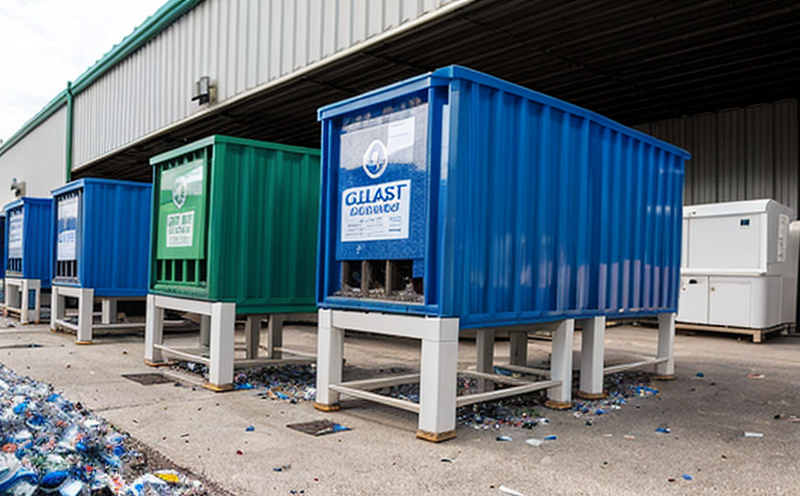EN 12919 Ceramic Waste Thermal Conductivity
The European standard EN 12919 specifies the method of determining the thermal conductivity of ceramic waste materials. This test is crucial for quality managers, compliance officers, R&D engineers, and procurement professionals involved in the recycling and reprocessing of ceramics into new products.
Thermal conductivity plays a significant role in the design and performance of recycled ceramic materials used in various applications such as thermal insulation, structural components, and industrial equipment. Accurate measurement ensures that the recycled ceramics meet the required standards for their intended use.
The test involves precise specimen preparation and conditioning to ensure consistent results. Specimens are typically prepared from crushed or ground waste material, which is then conditioned at a specific temperature and humidity level before testing. The thermal conductivity of these specimens is measured using an appropriate apparatus that adheres strictly to the procedures outlined in EN 12919.
The standard ensures consistent results across different laboratories by providing detailed instructions on specimen preparation, conditioning, and measurement techniques. This consistency is vital for compliance with regulatory requirements and for comparing test results between different facilities.
| Standard | Description |
|---|---|
| EN 12919-1:2015 | Ceramic waste thermal conductivity – Part 1: General principles and terminology |
| EN 12919-2:2015 | Ceramic waste thermal conductivity – Part 2: Test methods for ceramic waste materials |
The testing process involves conditioning the specimens to ensure they are at a stable temperature and humidity level before measurement. The apparatus used in this test typically includes heating elements and sensors capable of accurately measuring thermal conductivity over small temperature gradients.
Applied Standards
| Standard | Description |
|---|---|
| EN 12919-1:2015 | Ceramic waste thermal conductivity – Part 1: General principles and terminology |
| EN 12919-2:2015 | Ceramic waste thermal conductivity – Part 2: Test methods for ceramic waste materials |
Eurolab Advantages
EuroLab offers unrivaled expertise and precision in performing EN 12919 ceramic waste thermal conductivity tests. Our state-of-the-art facilities ensure that all specimens are prepared, conditioned, and tested according to the strictest standards.
- Accurate specimen preparation and conditioning
- Use of calibrated, high-precision equipment
- Compliance with all applicable international standards
- Detailed reporting tailored to your specific needs
EuroLab’s experienced technical staff are trained in the latest testing techniques and adhere strictly to EN 12919 requirements. Our services provide valuable insights into the thermal properties of ceramic waste, helping you make informed decisions about recycling processes and product design.
Our clients benefit from our comprehensive understanding of ceramic waste materials and their applications. This knowledge allows us to offer tailored solutions that meet your unique requirements for quality assurance and compliance.
Use Cases and Application Examples
- Incorporation of recycled ceramics into new building materials
- Development of thermal insulation products from ceramic waste
- Enhancement of the performance characteristics of structural components through the use of recycled ceramics
- Compliance with environmental regulations regarding the disposal and reuse of ceramic waste
| Standard | Description |
|---|---|
| EN 12919-1:2015 | Ceramic waste thermal conductivity – Part 1: General principles and terminology |
| EN 12919-2:2015 | Ceramic waste thermal conductivity – Part 2: Test methods for ceramic waste materials |
The results of these tests are essential in determining the suitability of recycled ceramics for various applications. For instance, if a recycled ceramic is to be used as thermal insulation, its thermal conductivity must be within specified limits to ensure effective insulation performance.





